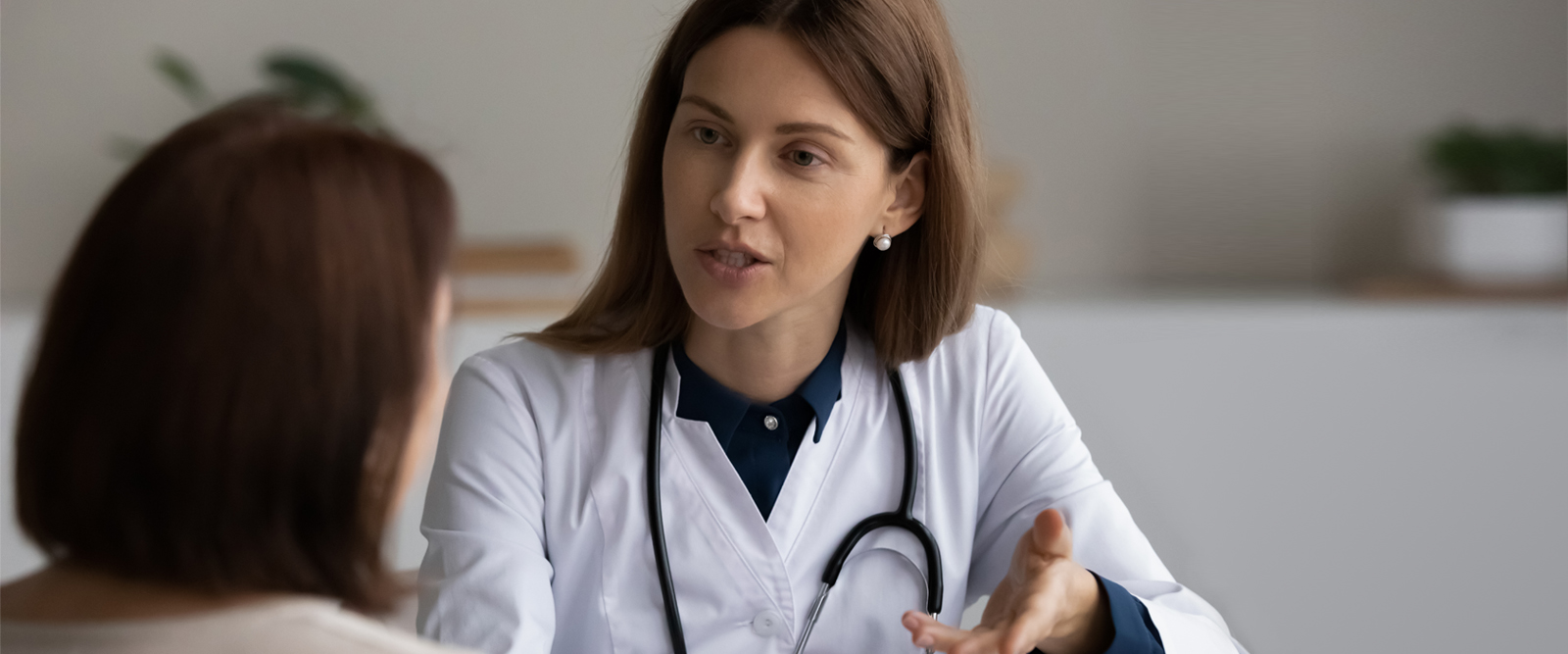5 Reasons to See a Gynecologist After 50
An OB-GYN explains why annual gynecological check-ups remain important for women as they get older.

A gynecologist is often seen as a one-stop resource for all women’s health. But many women stop seeing their gynecologist as they get older and are no longer in their reproductive years.
“They might think, ‘I’m done having kids,’ or ‘I’ve entered menopause, I don’t need to see a gynecologist anymore,’” says Dr. Mary Rosser, an OB-GYN at NewYork-Presbyterian/Columbia University Irving Medical Center.
In fact, Dr. Rosser explains, for those over the age of 50, it’s as important as ever to put your gynecological health first. “Women should see a gynecologist every year in order to get specialized care at every stage of life,” she says. “An annual OB-GYN visit gives women the chance to get educated about the changes in their body, be screened for certain cancers and chronic conditions, and practice preventive measures.”
She recommends a visit to a person’s primary care physician and their gynecologist annually for everyone assigned female at birth.
Health Matters spoke with Dr. Rosser, the Richard U. and Ellen J. Levine Assistant Professor of Women’s Health in Obstetrics and Gynecology at Columbia University Vagelos College of Physicians and Surgeons, to understand the reasons to see a gynecologist after 50 to stay on top of your health.

Dr. Mary Rosser
1. Screening for cancer
The risk of gynecological cancers — cervical, uterine, ovarian, vaginal, and vulvar — increases with age. An annual visit to the gynecologist helps provide early detection for these cancers.
To check for cervical cancer, your gynecologist will do an HPV test, a Pap smear, or an HPV/Pap co-test (one swab is used for the combined test), when you’re due until age 65. If you’ve had abnormal results in the past or have a history of cervical cancer, you may be advised to continue screening past 65.
A pelvic exam also checks for noncancerous conditions such as ovarian cysts and fibroids as well as a variety of conditions that may develop with age. The exam may include the vulva, vagina, pelvic/reproductive organs, and urinary tract. While guidelines vary on how often you should get a pelvic exam, Dr. Rosser advises women to get a pelvic exam every year so that they can be checked for early signs of disease. “Ultimately, you and your OB-GYN should talk about what makes sense for you, depending on your individual situation and medical history,” she says
The risk of breast cancer also increases with age. At your visit, your OB-GYN will perform a breast exam, checking for any changes including abnormal lumps, and refer you for a mammogram, the hallmark screening method to detect breast cancer. For women of average risk, screening guidelines recommend getting a mammogram every one or two years until age 74. The American Cancer Society recommends continuing screening as long as a woman is healthy and expected to live at least 10 more years.
2. Treating menopause symptoms
Menopause can cause uncomfortable symptoms like hot flashes, mood swings, insomnia, night sweats, irregular periods, vaginal dryness, and weight gain. The average age of menopause is 51. An OB-GYN visit is an ideal time to discuss and learn about these changes and treatment strategies, says Dr. Rosser.
Depending on your symptoms, there are several nonhormonal and hormonal treatment options. Because menopause causes a decline in estrogen, hormone therapy — in the form of pills, creams, gels, foam, ring, or transdermal patches — can relieve symptoms. Low-dose antidepressants can also be an option, as well as lifestyle strategies like yoga and meditation. Your OB-GYN can help decide what treatments might be right for you.
3. Sexual health and intimacy counseling
Declining estrogen levels, thanks to menopause, are a major factor behind low libido as well as vaginal dryness and vaginal thinning (also known as genitourinary syndrome of menopause), which can cause pain during sex.
Sexual health can be overlooked during health checkups, but it’s an area that is important to overall well-being, says Dr. Rosser. “I counsel many women around menopause and beyond who come to me with concerns about low libido and pain during sex,” she says. “Thankfully, there are treatment options to resolve these problems.”
These include hormonal therapies like vaginal estrogen and nonhormonal therapies such as over-the-counter vaginal moisturizers and lubricants. For women over 50, “vulvar and vaginal moisturizers are just as important as facial and body moisturizers,” Dr. Rosser says. She also advises her patients to use water-based lubricants during intercourse. In sexually active patients, a gynecological exam includes screening for sexually transmitted infections (STIs).
“I try to normalize talking about sex among this age group by openly discussing it and giving out information,” Dr. Rosser says.
An annual OB-GYN visit gives women the chance to get educated about the changes in their body, be screened for certain cancers and chronic conditions, and practice preventive measures.
Dr. Mary Rosser
4. Addressing urinary and pelvic floor disorders
Many women over 50 may have urinary problems, like urgency and incontinence, and other pelvic floor disorders, such as pelvic prolapse, which is when the pelvic floor muscles are weak and the pelvic organs slip down from their normal position. These issues can be due to many things, including decreased estrogen levels during menopause, pregnancy, childbirth, excess weight, smoking, and genetic factors, Dr. Rosser explains.
“A gynecologist can really help to educate a woman about her unique issues and help determine what kind of exercises, strategies, and treatment methods can help. Pelvic floor therapy, such as Kegels, is a terrific tool for many women. Being able to have these open conversations and know exactly what’s going on can be extremely beneficial,” says Dr. Rosser.
5. Preventive care
A visit to your OB-GYN also covers basic preventive screenings to check blood pressure, cholesterol, bone density, and more. Tests like these can help women stay healthy and active as they age. And the visit is a great time to discuss lifestyle factors such as eating well and exercising that can prevent many chronic diseases, like heart disease and type 2 diabetes.
“The gynecologist’s exam room allows women to open up and talk about a variety of issues,” says Dr. Rosser. “It allows for education, screening, prevention, and early intervention. We can improve the lives of women for many years to come by having yearly visits with them.”
Additional Resources
Learn more about women’s health at NewYork-Presbyterian.
Mary L. Rosser, M.D., Ph.D., is an OB-GYN at NewYork-Presbyterian/Columbia University Irving Medical Center. She is also the Richard U. and Ellen J. Levine Assistant Professor of Women’s Health in Obstetrics and Gynecology at Columbia University Vagelos College of Physicians and Surgeons, where she is director of Integrated Women’s Health and director of the Columbia Women’s Postpartum Health program.
